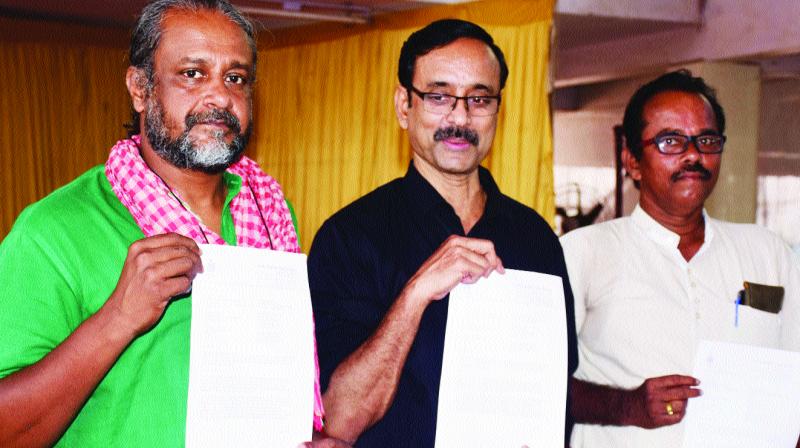High mercury levels in fish at Kodai lake: IIT report

Madurai: Mercury dumped by Hindustan Unilever Limited’s erstwhile thermometer manufacturing plant at Kodaikanal, has contaminated water bodies and even downstream bodies to an alarming level.
A study conducted by Professor Asif Qureshi from IIT, Hyderabad revealed high levels of mercury in fish from the Kodaikanal lake and ponds fed by the Pambar stream in the Periyakulam plains in Theni district. He said that it might cause serious health hazards for fish consumers in this region.
Sharing the study report with media persons at Madurai on Monday, Nityanand Jayaraman, renowned environmental activist from Chennai, said that four out of eight fish caught from the Kodaikanal lake contain between 31.1 and 41.9 micrograms/kg of mercury as against the safe level of 30 microgram/kg in fish prescribed by the US Environmental Protection Agency. Similarly, fish caught from Veerappanaicker pond fed by the Pambar stream, less than 5 km from Kumbakarai falls, contained far higher levels - between 94 and 165 micrograms/kg, he said.
“The Pambar stream which feeds several ponds in Periyakulam before joining the Varaha river and emptying into the river Vaigai runs beneath the contaminated thermometer factory site,” he said. Methyl mercury, the form that is found in fish, has toxic effects on people who consume it, particularly pregnant women. It harms fetus development and causes serious birth defects, said Qureshi, assistant professor, department of Civil Engineering, IIT, in his official communication sent to the district collectors of both Theni and Dindigul and the Kodaikanal municipal commissioner on August 2.
“The finding make a case for tightening standards to a level where the factory site is no longer leaking mercury at levels high enough to contaminate fresh water fish in downstream water bodies,” said Prof. Murali, State secretary of the Peoples’ Union for Civil Liberties (PUCL).
The mercury thermometer factory operated by Hindustan Unilever Ltd was shut down in 2001 by the state environmental regulators after it was found that the company had illegally disposed of tonnes of mercury wastes at a local scrap yard in Kodaikanal town, and also into the Pambar Shola reserved forest which is now part of the Kodaikanal wildlife sanctuary, recalled Jayaraman.
He also pointed out that Unilever’s proposed mercury clean-up standard for soil in Kodaikanal is 20 times weaker than the soil guideline value for mercury in the United Kingdom, Unilever’s headquarters. Adverting to the IIT report, Prof. Murali said, “We want state government to take up a proper study to find out the nature of mercury contamination in the factory site and clarify this to people. If government fails, we will organise a state level protest to sensitize people,” he said.
‘Mercury contamination happens through bio-magnification’
Bio-magnification process might result in increasing mercury level high in fish due to mercury dumped by Hindustan Unilever Ltd's erstwhile Thermometer manufacturing plant at Kodaikanal, said a zoology professor S Dinakaran.
Accumulation of heavy metals in water bodies are incorporated into the diet of aquatic organisms such as plankton. When fishes eat plankton, in this case, mercury gets deposited in its tissue. When the fishes are eaten by animals and humans, it becomes part of food chains," he said.
As of now, we can say with certainty that the mercury level is high among fishes caught in Kodaikanal lake and Veerappanaicker pond in Periyakulam plain, over the safety level. Further research is needed to study its impact on vegetables cultivated in Kodaikanal hills and in wild animals," he added.
When contacted a senior officer in Theni, he said that as district was affected by drought in the last two consecutive years, there was a rare possibility for such a thing to happen.

